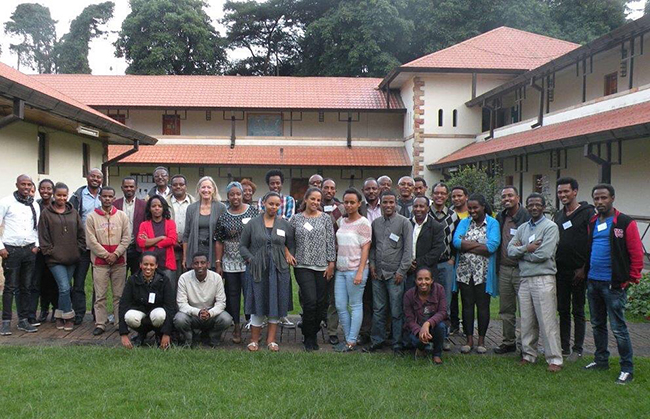Reflections from Ethiopia – Part 2

The second two weeks in Ethiopia was spent in the capital, Addis Ababa. My husband and I have been teaching a course on marriage and family issues at a theological college for the past twelve years. It has been a truly life changing experience as our students have experienced more challenges and hardships than one can imagine. They are also the future leaders of the church in Ethiopia, and we count it an immense privilege to be able to share in their lives. The brief stories of three students will give you a sense of life in Ethiopia.
- Rediet, as a girl of 13, had to run for her life. Marriage by abduction is not uncommon in rural Ethiopia, despite laws that now forbid it. In her youth, it was common practice. A man had stalked her and planned to forcibly abduct her, rape her and force her to marry him. Most parents, once their daughter has been taken and raped, give her up to her captor since no other man would want her. Her friend had been captured, brutally raped by several of the men that took her, and forced to marry one. She did not want this for herself. Her parents confided their concerns to a local doctor and, the night before the abduction was to take place, wisked her away under the cover of night to the city. Having escaped her abductors scheme, she is now studying for her Master’s degree in Christian Education.
- Tesfaye was a college student when the Emperor Haile Selassie was arrested. He had heartily approved of the arrest and with many other student protestors, were hopeful for a new, more democratic government. In the void of leadership, the military took over and, being highly influenced by Marxist ideology, formed a Communist government. Repression of dissidents followed swiftly and he was arrested and sent to Somalia. In prison there for eleven years, he eventually was released and returned to Ethiopia. He eventually became a lawyer, and was now enrolled in the college working on his Master’s in Christian Leadership.
- Samrawit lost her mother at a very early age and her father then left to be with another woman. She was raised by her older siblings. Her family suffered from a cultural practice of evil spirit worship where, despite their poverty, they were forced to pay someone to perform rituals several times a year providing several days of expensive supplies for the ceremony. Her older sister came to Christian faith and led Samrawit out of the cultic practice. Samrawit married and had two beautiful children. Two years ago, her husband was killed in South Africa in a racially motivated riot against foreigners. Bright, articulate and joyful, she is now studying for her Masters in Educational Leadership.

Many of our thirty-six students travel one to three hours to get to class. Having no cars they take public transportation, cramming in mini-buses, transferring several times. Many leave their families in the rural areas for their academic pursuits in the city, returning only briefly between semesters. They know education is not only the path to a different and better life, but their theological education, the path to building the church in Ethiopia to bring hope and healing to their people. Their determination and passion are awe-inspiring. We are humbled and incredibly privileged to share in their journey.

